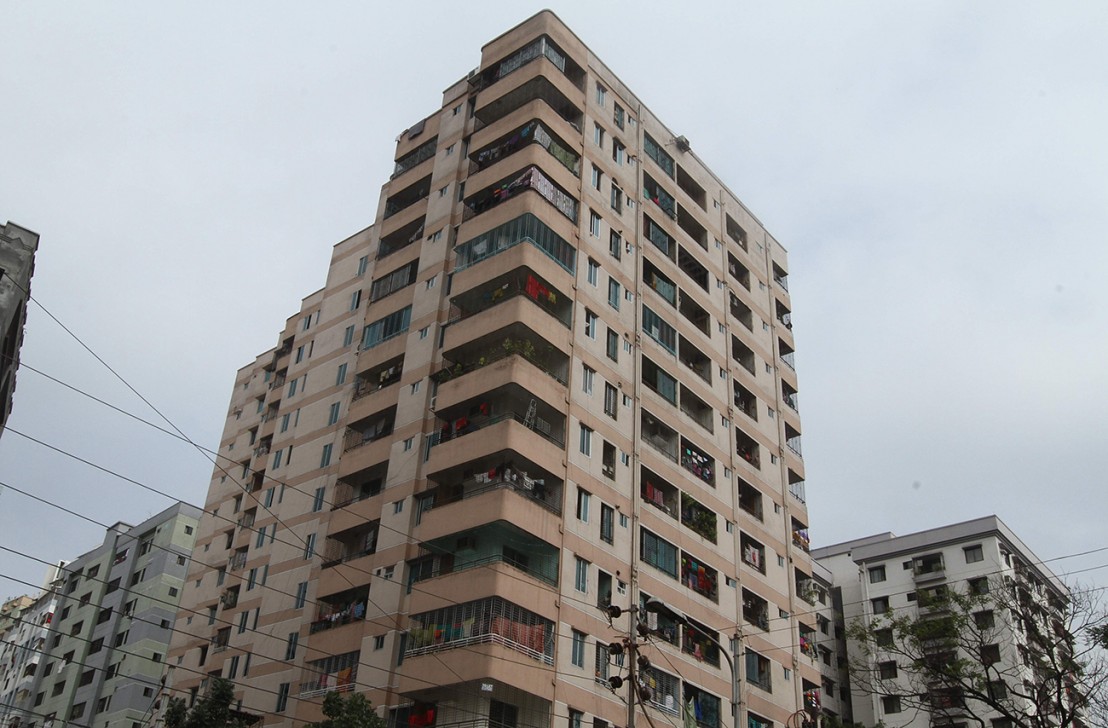Dream flats to remain elusive

The dream of owning a flat may never come true for many as properties will become more expensive owing to the hike in prices of major construction materials as well as gas, realtors say.
Consequently, realtors’ expectation about sales growth in 2019 is unlikely to be fulfilled.
Realtors had hoped that the real estate sector would receive a boost after the government cut the registration cost for flats by 6 percent and gave special opportunity for investment of untaxed money in the sector in the budget for the current fiscal year.
But some new VAT and tax measures spooked the confidence of the sector, which has been on a sluggish mood for a long time. The latest blow came on June 30 when gas price was hiked.
Since the unveiling of the budget on June 13, the retail price of each 50-kg bag of cement has gone up by 12 percent, or Tk 50, to Tk 460-Tk 470. Rod prices will likely see an increase of Tk 9,000 per tonne.
Cement and steel are the major raw materials for the housing sector.
For a quality flat, cement use makes up 16.4 percent of the raw materials and steel 24.6 percent, according to Khan Mahmud Amanat, a professor of the civil engineering department at the Bangladesh University of Engineering and Technology.
He said 400 bags of cement and four tonnes of mild steel rods are required for a 1,000 square feet apartment of high quality.
As per his calculation, the cost of construction will increase by Tk 56,000 for a 1,000 square feet apartment, of which Tk 20,000 will be spent for cement consumption and Tk 36,000 for rod use.
The construction cost will increase by Tk 20 for cement and Tk 36 for rod for per square feet, Prof Amanat said.
“The impact of the price hike will be reflected very soon and the cost for mega infrastructure projects will escalate.”
“We expected at least 9 percent growth in 2019 after a dull year in 2018. But our expectations may not be realised,” said Alamgir Shamsul Alamin, president of the Real Estate & Housing Association of Bangladesh (REHAB).
According to him, the housing sector is likely to be affected because of the recent price hike of construction materials and the sales growth may fall significantly.
Alamin could not give an idea about the increase in the price of apartment as it relies on various factors, including location, soil and the price of land.
He said the loan opportunity extended to government employees would have brought a positive impact on demand for homes. Now, the price escalation will discourage future customers.
“This is certainly not good news for us,” he said, adding that if long-term home loans are easily available, it would not affect the sector.
Liakat Ali Bhuiyan, first vice-president of the REHAB, said the sector’s growth depends on 250 backward linkage industries. So, if the price of major construction items increases, there will be direct impact on the sector.
“And it will be difficult for the middle class to buy flats.”
He is optimistic that the price of rod and cement will go down as stakeholders in the sector are negotiating with the National Board of Revenue.
A downturn hit the real estate market in 2012 for intermittent political instability, a bearish stock market and the government’s apathy towards providing gas connections to new buildings.
The property price corrections in the past few years have lured in many prospective home buyers and the market has been revived again.
The sector delivers roughly 10,000-12,000 units a year.
